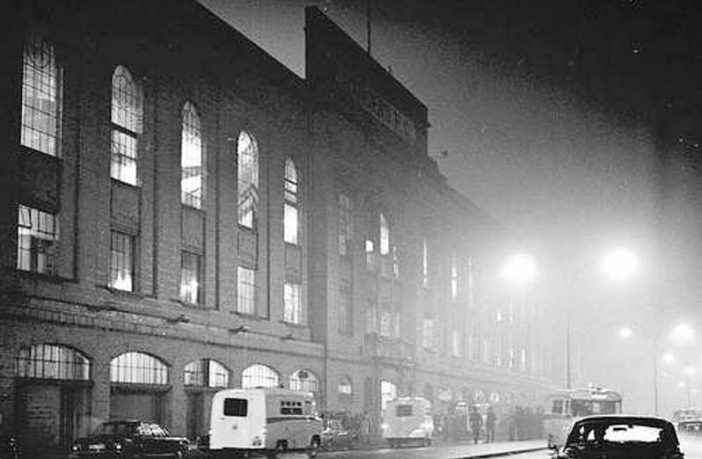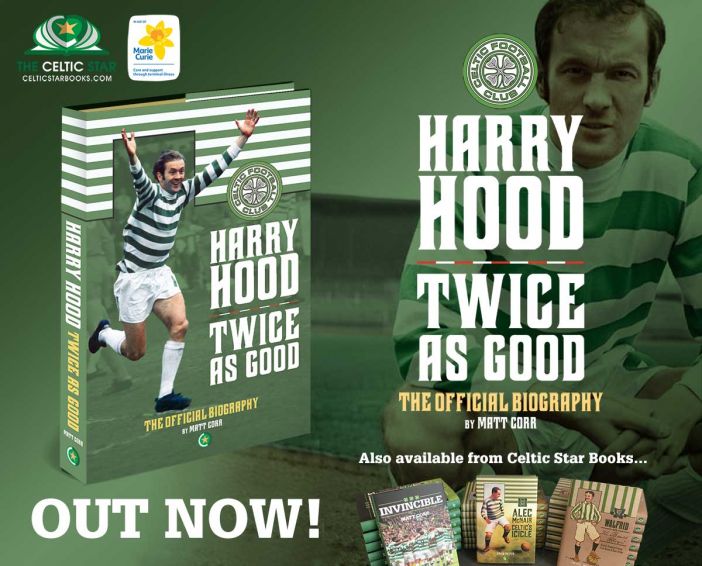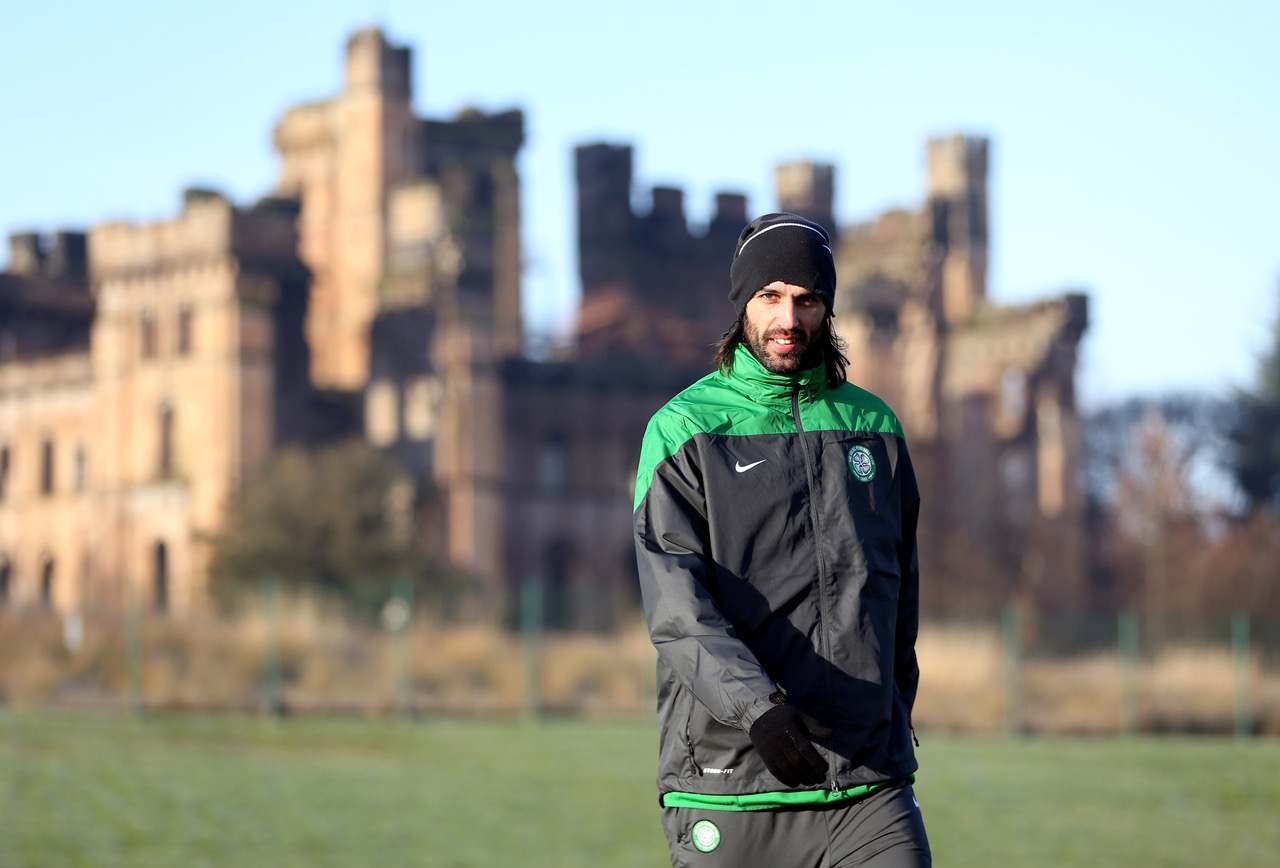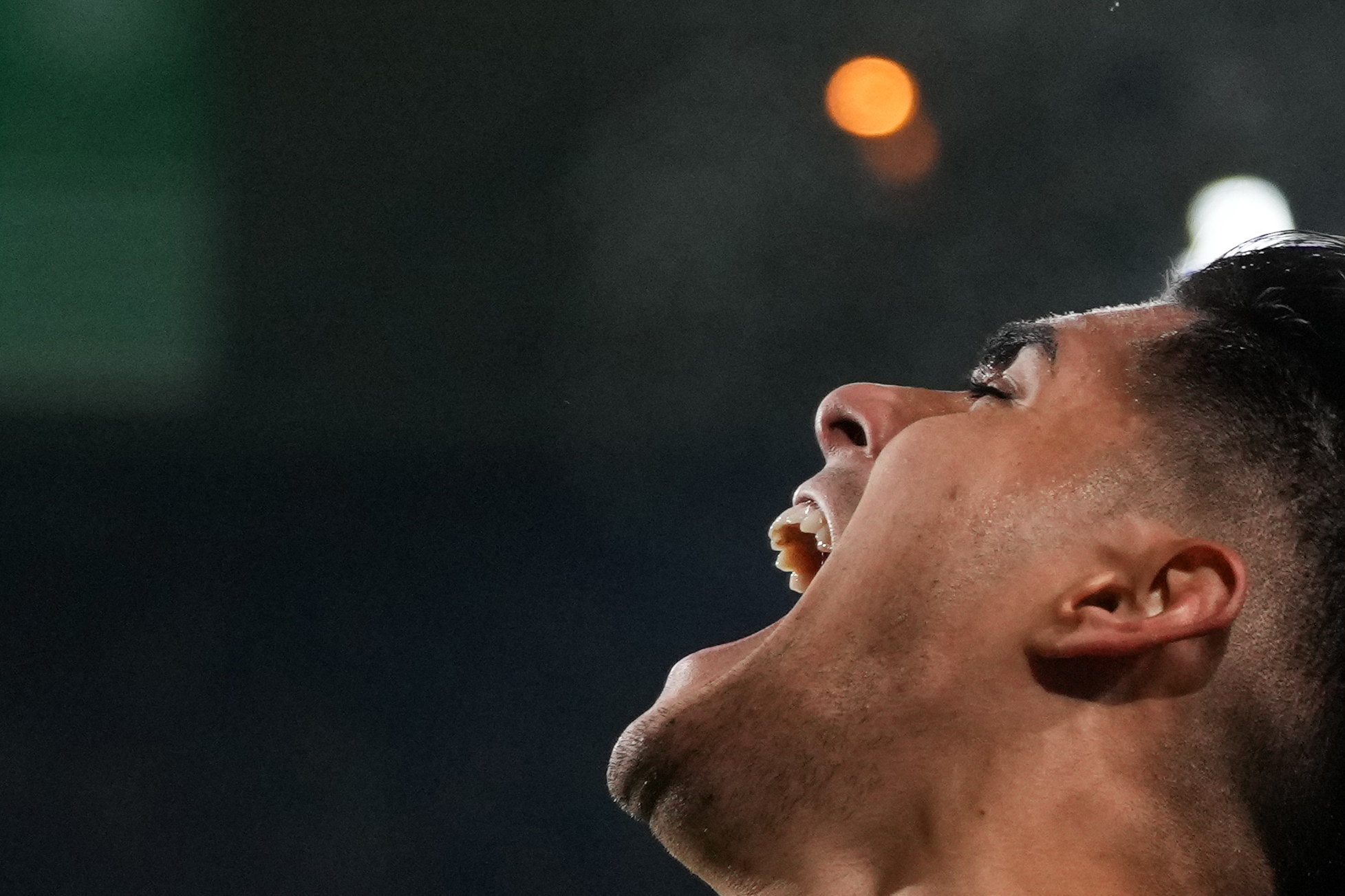The Celtic Star will run a series of articles today to remember the awful events at Ibrox 51 years ago today. On 2 January 1971 a huge crowd attended the Rangers v Celtic match and 66 poor souls never came back after a stairway crush at the Rangers end of the ground shortly after the final whistle.
BBC Scotland broadcast their Disclosure programme on the Ibrox Disaster a few nights ago and it was harrowing, we have linked to that on the iPlayer below. It is a tough watch but does a great job in explaining what happened and why the Ibrox Disaster happened as well as showing the immense grief that this terrible loss of life from folk just going to a game of football caused.
We’ll start with David Potter who listened to the game on the radio among mixed company and explains how news of the Ibrox Disaster seeped out in the hours and days after the tragedy occurred. To those who lost their lives may they all rest in peace.
Here is David Potter’s memories of 2 January 1971…

THE IBROX DISASTER – 2 JANUARY 1971
I might have gone to the game, but decided, mainly because of finance and the difficulties of transport at New Year time, in favour of visiting friends in Polmont along with my then fiance. It was my Teacher Training College year – an appallingly boring but necessary year – and my record of going to games had been as good as my financial circumstances would allow. 1970 had not been the best of years – we had lost three major Cup finals to Aberdeen, Feyenoord and Rangers and a defeat to Aberdeen in early December at Parkhead had made us wonder about the Scottish League.
On the train from Edinburgh to Polmont were many supporters of each side, basically ignoring each other, going on to Glasgow. Everyone was quiet, possibly a bit hungover and “no very weel”, and a few old ladies expressed their opinion that they would be careful about what train to get back because it might be slightly noisier and nastier.
Our friend’s father was a Rangers supporter, but a nice chap who also went to see Falkirk as well. He had actually been at Brockville yesterday with his 12 year old son, an uncompromising Falkirk supporter. Falkirk had beaten Rangers 3-1 and he talked about the game, admitting that Rangers were terrible. We had lunch, a good drink, and then the radio was put on so that the game could be listened to.
Listening to a game on the radio is possibly the most nerve wracking way of following a game, particularly when in the presence of an “enemy”, although it was hard to envisage this chap as any kind of enemy. The ladies were all talking about weddings, dresses, Prince Charles (no kidding!) and cooking while the game was progressing. I forget who the commentator was – George Davidson perhaps or David Begg? – but the man was doing a fine job of convincing everyone that it was a great game whereas in fact it was decidedly dull. Loads of shouting from the fans, but not much going on in the match.
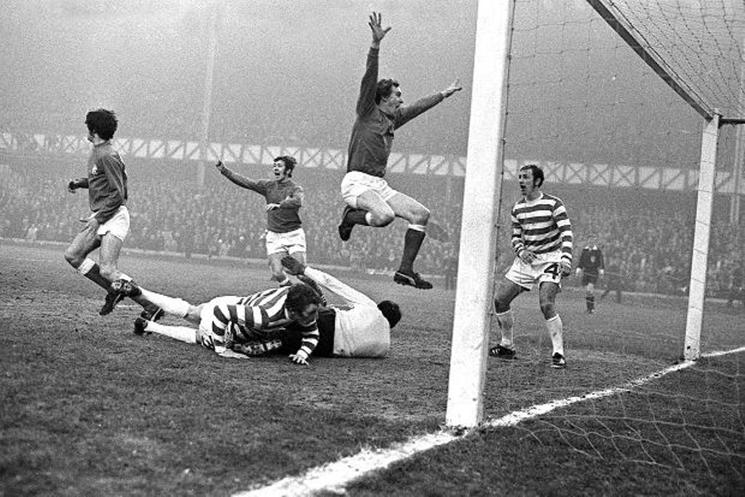
On my best behaviour, I contained my emotions when Celtic scored late on, even saying something along the likes of “well, they don’t really deserve to win”, very politely and graciously. But then Rangers equalized. My friend smiled politely, I managed (just) to smile back and well, at least, I thought, everyone was happy enough. Old Firm games are often over-rated. But the TV programme then came on to tell us that Aberdeen had beaten St Johnstone and that therefore Celtic had lost ground in the League race. I was concerned about that, but then again a 1-1 draw at Ibrox is hardly the worst result.
Ah well, but then a lovely plate of fish and chips for tea, more drink and entertaining conversation about weddings, University courses and how everyone hated Edward Heath and the Tories. About 6 o’clock a Newsflash on TV said that 6 people had died and more were injured at the big game at Ibrox.
I immediately thought this was some sort of fight or riot that had got out of hand, but it was stressed that it was due to a stairway collapse. 6 dead soon became 11, then 23 and by the time that we got on the train coming from Glasgow to Edinburgh at about 8.00 pm at night I was saying thigs like 35 to supporters of each side who had heard that something had happened but didn’t know the details. In 1971, before mobile phones, on a train you were effectively out of contact with the rest of the world.

Animated conversation took place about how dangerous crowds were. I related my own hairy experiences at Celtic v Racing Club, Celtic v Leeds and Scotland v Austria where, frankly, but for the grace of God, something similar might easily have happened, and quite a lot of other people had stories to tell about Tynecastle, Brockville and Easter Road.
It was actually a very civilised conversation and one of the very few that I can honestly say I have ever seen between groups of Celtic and Rangers supporters where no-one said anything nasty to each other. At Waverley Station, as they got off, some of them actually embraced each other before hurrying home to find out what exactly had happened.
It was really only the next day before the whole truth was known.
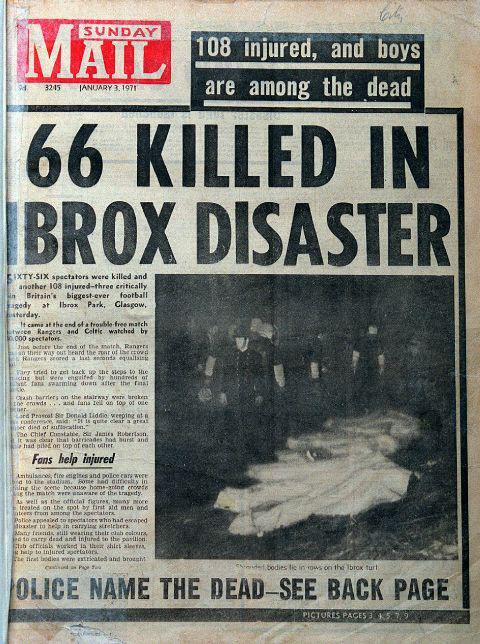
David Potter
The Glasgow Herald football reporter Andrew Young described the aftermath of Scotland’s worst ever football disaster:
“Eventually at the top of the terrace the true horror became apparent. Half a dozen lifeless forms were lying on the ground. Rescuers were tripping over the dead and injured as they struggled back with more victims.
“A wedge of emptiness had been created part of the way down the long steep flight of steps leading to the Copeland Road exit. In it were the twisted remains of the heavy steel division barriers. They had been mangled out of shape and pressed to the ground by the weight of the bodies.
“Lying all over the steps were scores of shoes that had been ripped off in the crush. Beyond, the steps were still dense with groaning people.
“There was almost complete shocked silence at this stage. Occasionally we would hear the sounds of coins falling from the victims pockets as they were lifted away.”
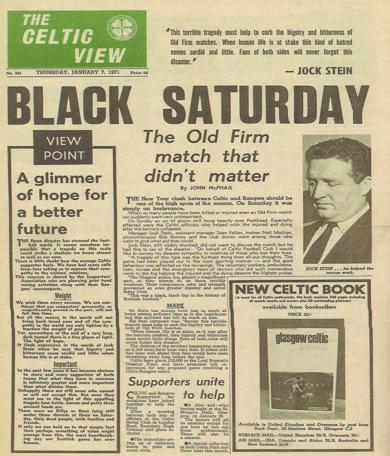
WATCH – BBC Scotland’s Disclosure programme which was broadcast on 28 December 2020 and is now available on iPlayer. Fifty one years ago, a crush on stairway 13 at Ibrox football stadium resulted in the deaths of 66 Rangers supporters. One of the biggest peacetime disasters in modern Scotland, it left a further 145 injured.
Andrew Picken investigates how it happened and speaks to survivors and those who lost loved ones about the day and the shadow it has cast on their lives. WATCH HERE. Contains some upsetting scenes.
